A Cup of Life Over Tea, in Darang Village.

I walk out of the room, letting the door creak behind me and reveal its age yet again. The sun has finally gone into hiding behind the clouds, and I’m hopeful it won’t appear again to snatch the relief from the heat. Lost in my thoughts, I find myself at the entrance to the tea gardens and staring at the very white hair of a lady in a wheelchair, with her back towards me. It takes me a minute to recollect myself, and another to realize that she must be the heiress of this massive 150-year-old tea estate.
I wound up here after much contemplation and the decision to ditch Mcleodganj, which must be spilling with people at the peak of this hot summer. I took a detour near Palampur, to the obscure village of Darang instead, whose claim to fame is India’s first tea estate planted by an Indian, complete with quaint British-style outhouse cottages to house the then estate manager and the kids’ English governess.
Her eyes are shut, and she’s clutching an empty tea cup in her frail hand. When she finally opens her eyes, she doesn’t seem surprised to find me looking at her. In a calm demeanor that adds grace to her aging face, she tells me that it has never been this hot here, and relates the story of a forest fire this morning that reached their cow-shed and almost destroyed the trees at the edge of the estate. I’ve already heard this account of the day’s crisis from her son and his wife, but I listen again with the same attention that she pays to its details. Her clear eyes are a mix of pride and acceptance, and she minds me of graceful elderly women in old Hollywood movies.
I glance at the snow-capped Dhauladhar Range behind us, and wonder how I can tell this 92-year-old lady that while she was ensuring the upkeep of her grand inheritance and protecting it from the elements of nature, our collective actions caused glaciers frozen for thousands of years to start melting, our forest cover to deplete drastically, and some of our most beautiful hill stations to lay waste under the pretext of tourism.
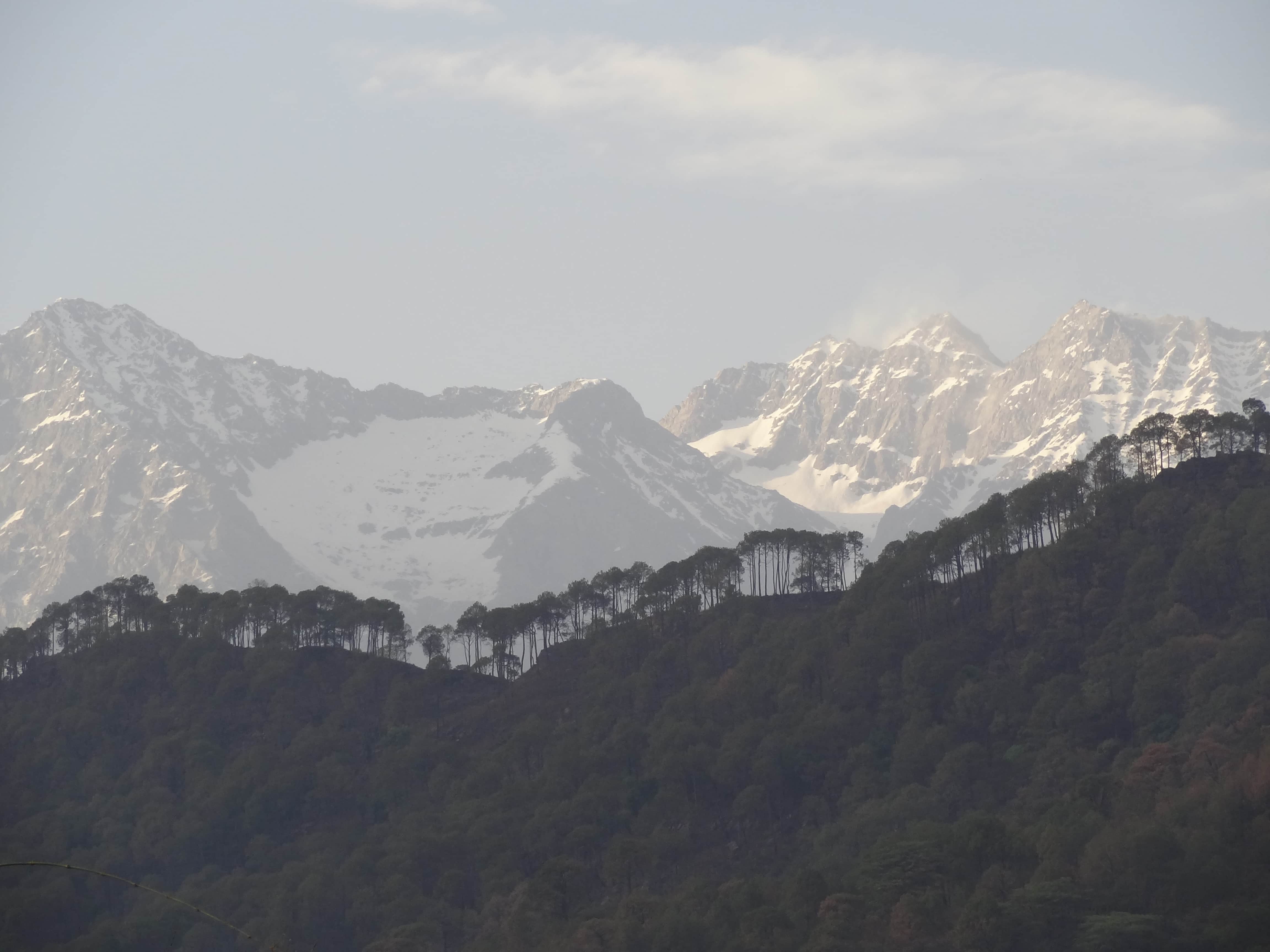
She leaves for her late evening nap, and I walk on, towards the lush green tea estates that complement the colonial charm of the cottages. Unlike the tea gardens on the steep Nilgiris slopes down south, the land here is uncharacteristically level, and tea bushes are interspersed with tall Oui trees. As I’ll later find out, the trees offer shade to the tea bushes in summer, and their leaves add nitrogen to the soil in winter. The smell of tea leaves permeates through the air, and I immediately relate it to the light in-house Darang brew we tasted an hour ago.
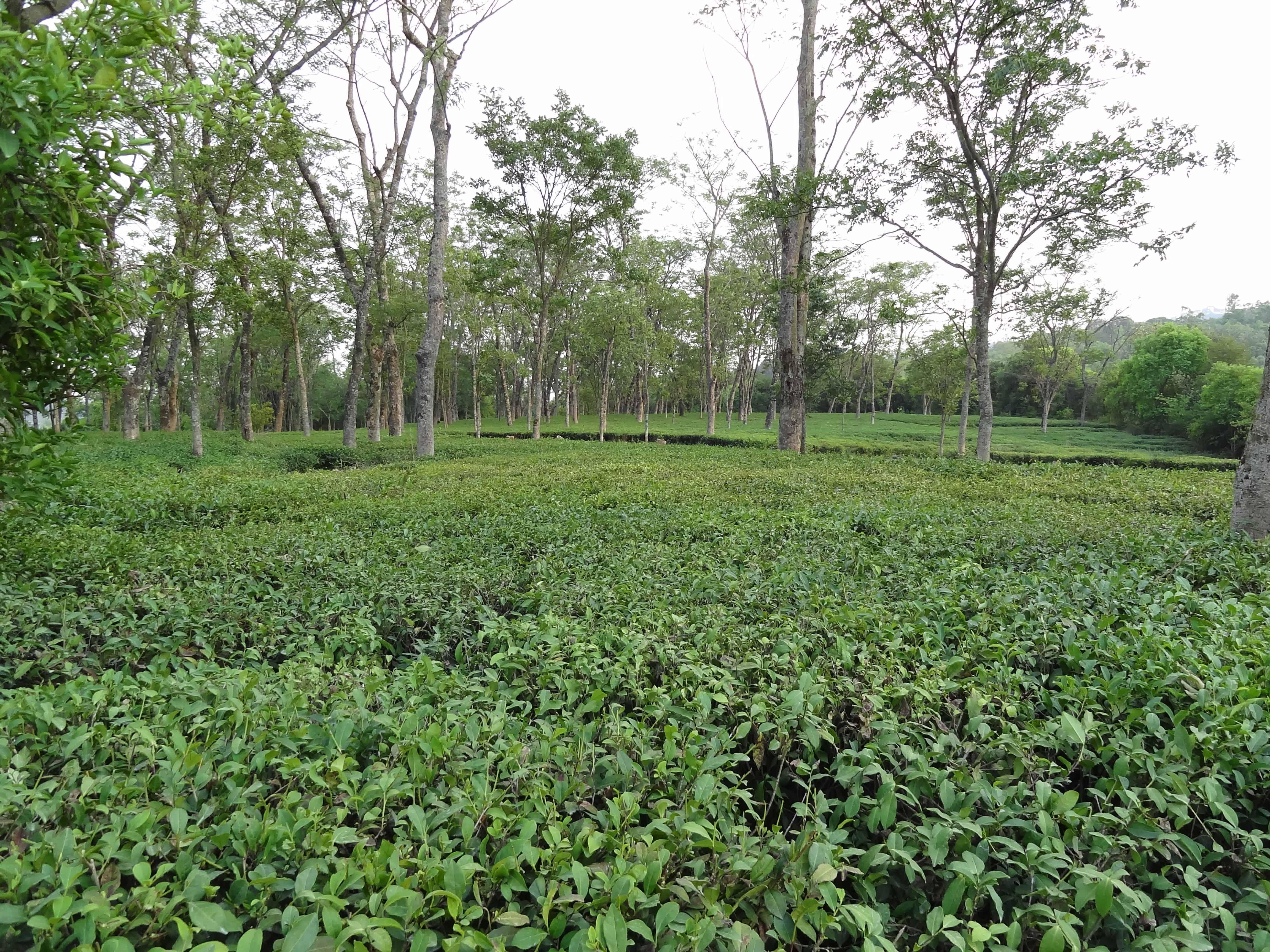
A narrow path winds past the tea garden, to a paved road leading uphill to the village huts, alongside terraced slopes, over dried out streams, and past trickles of waterfalls. The huts, homogenous in their sloping roofs, remind me of the Kumaoni village I fell in love with a few weeks ago, thought unlike the tiled roofs of Kumaoni huts, they are covered with slate. The sun has set without showing itself again, and a bright full moon has risen for my viewing pleasure. I seat myself on a roadside pavement and listen to the sounds of the shallow jungle that surrounds the village; crickets chirping, birds calling, toads croaking, and a tiny shrill opera that I can’t quite identify.
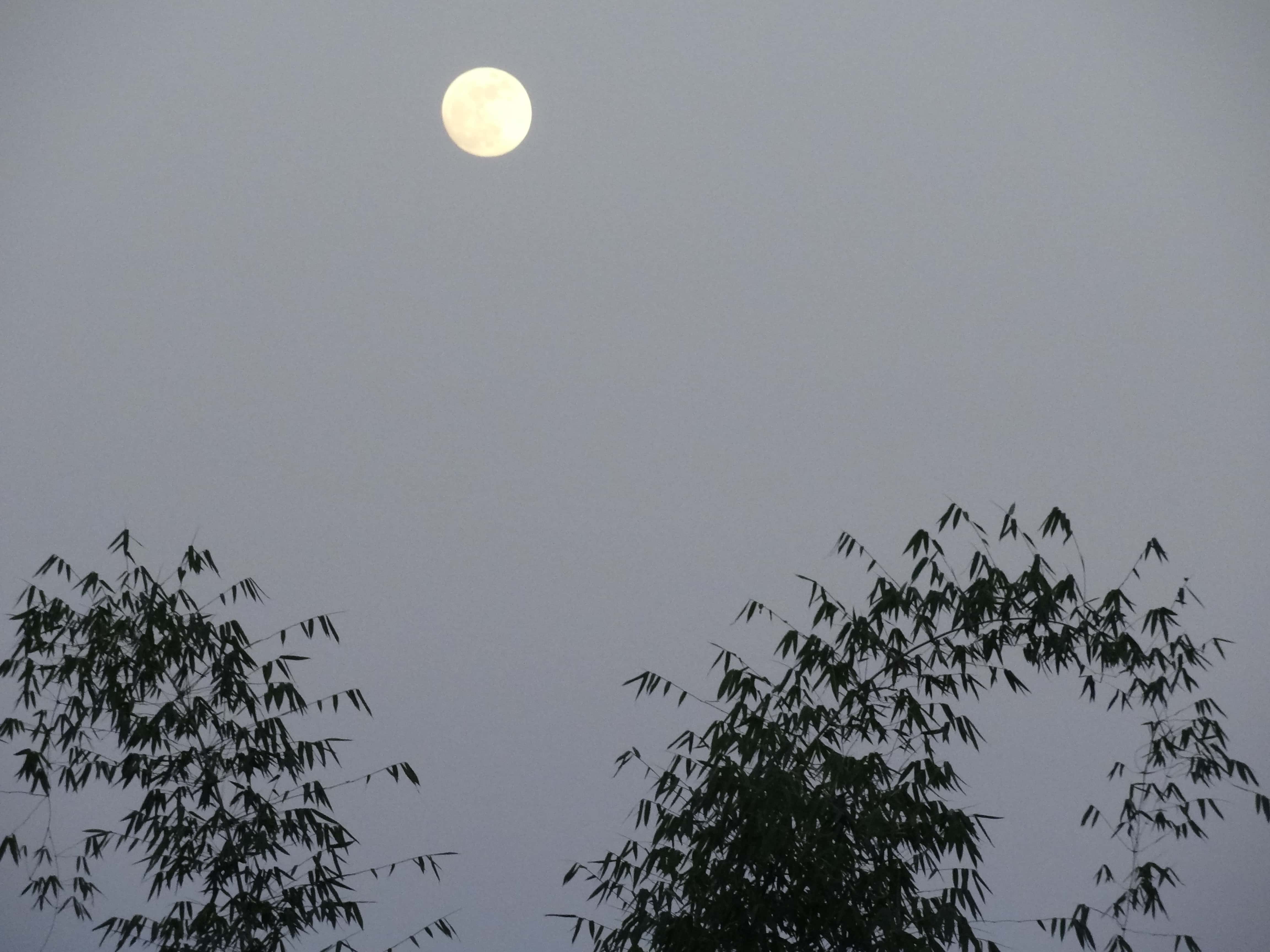
As I make my way back in the dimming light, I see residents of the village returning with their cows, goats, farming tools and kids, the day’s hard work evident in their darkened faces, and their smiles shy and kind. Back home, the heiress invites me to have soup with her and asks me about my travels, recalling her own wanderlust in younger days when she would walk from here to Dharamsala. We lament about the state of our natural resources when she mentions that the weather has become too dry for the tea to be picked this summer. She often ignores the questions I ask, and confesses that with old age, her hearing and her vision are slowly giving up.
I quickly learn that there are no written records about the history of the estate; when she first took it over as her father’s sole child, she found a sign in her great grandfather’s handwriting, mentioning in Urdu the tea produce of 1856. The plantation probably dates back to earlier than that. I imagine the history and memories she must carry with her, in her frail body, in her deep eyes, in her kind face, and my head swells with new questions, but dinner is served and I must take her leave.
=========
If you could, what would you ask her?
=========
Hi there! I’m Shivya, and I started this travel blog back in 2011, when travel wasn’t trendy, Instagram didn’t exist and AI wasn’t a thing (simpler times, I know!). I write about slow, meaningful and conscious travel – that is good for us, the places we visit, the people we meet along the way, and the planet at large. Settle down, grab a cup of tea, and read stories that remind you of the essence of travel. I’m so glad you found me!


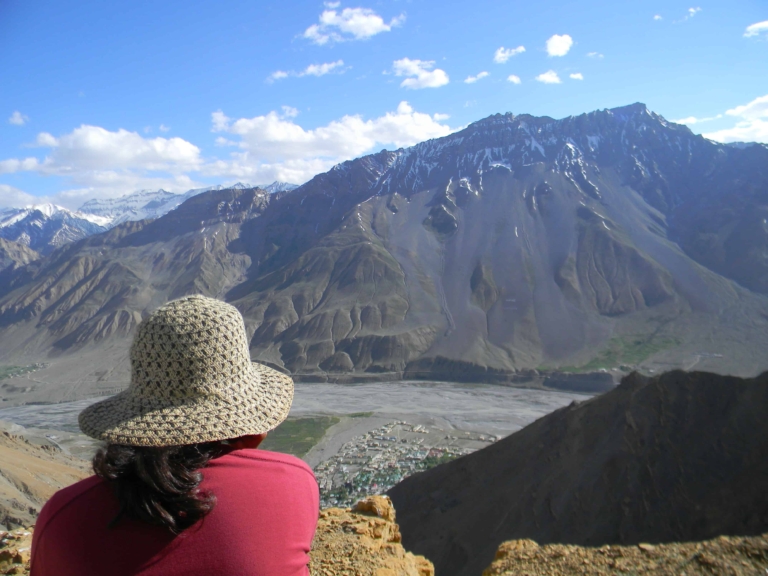
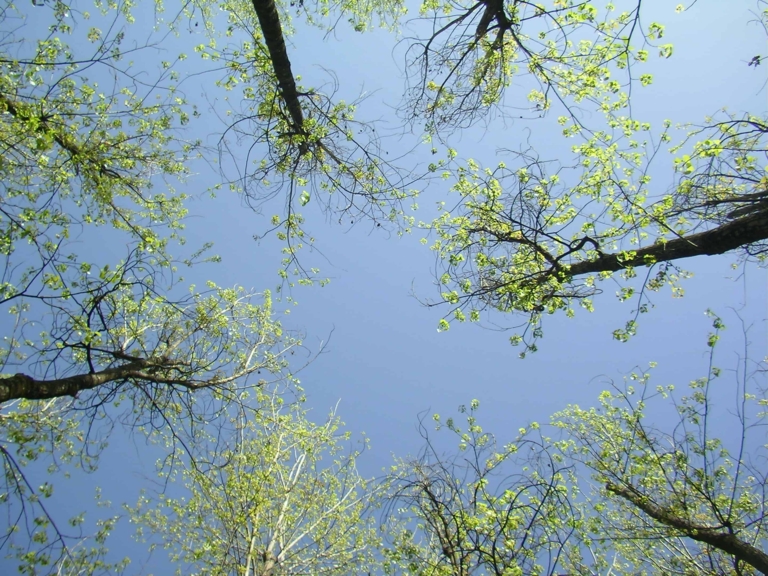


snow clad views awesome
🙂
Isn’t it wonderful to talk to old people who have a tale to tell and takenthe time to tell it?
It absolutely is, Debra.
Thanks for such a beautiful post, Shivya, I felt like I was right there with you. I think I would simply ask to hear more of her stories – she’s probably seen quite a lot in her time on the plantation, and it’d be fascinating to hear more about it.
Thanks Candance, I enjoyed your virtual company 🙂 I wish I had more time to spend with her and hear her stories, she’d have so many more to tell.
Terrific!!the only written record in the nomadic life of a person are in his/her eyes….if that could be written in a language……it would be a masterpiece!another brilliant stroke shivya…
Thanks 🙂 And you’re right. There isn’t another way to read history.
Really well written! Much more things to learn from you about writing! This blog is like a mood piece! 🙂
Thank you =)
Awesome post Shivya.. You transported me to that world 🙂
Thanks 🙂 Enjoyed your virtual company!
I would have asked her–how have you managed to remain consistently loving towards your inheritance?
It’s such beautiful inheritance that when you get there, you’ll probably change your mind about that question 🙂
This is a terrific story shivya. your writing inspires me to make a short film about it 🙂
Thanks Rajiv, would love to see it 🙂
Beautiful post, and so moody Shivya… I was transported to another world. Could you please throw some light on how to get there and where to stay? Are there any dhabas/ restaurants in the vicinity? Looking for a quick break to completely lose myself….and this sounds like a perfect getaway.
Hi Shiya,
Great post! you transported me there…Would love to visit this place in real, could you please share how to reach Darang and what all can be explored around Palampur?